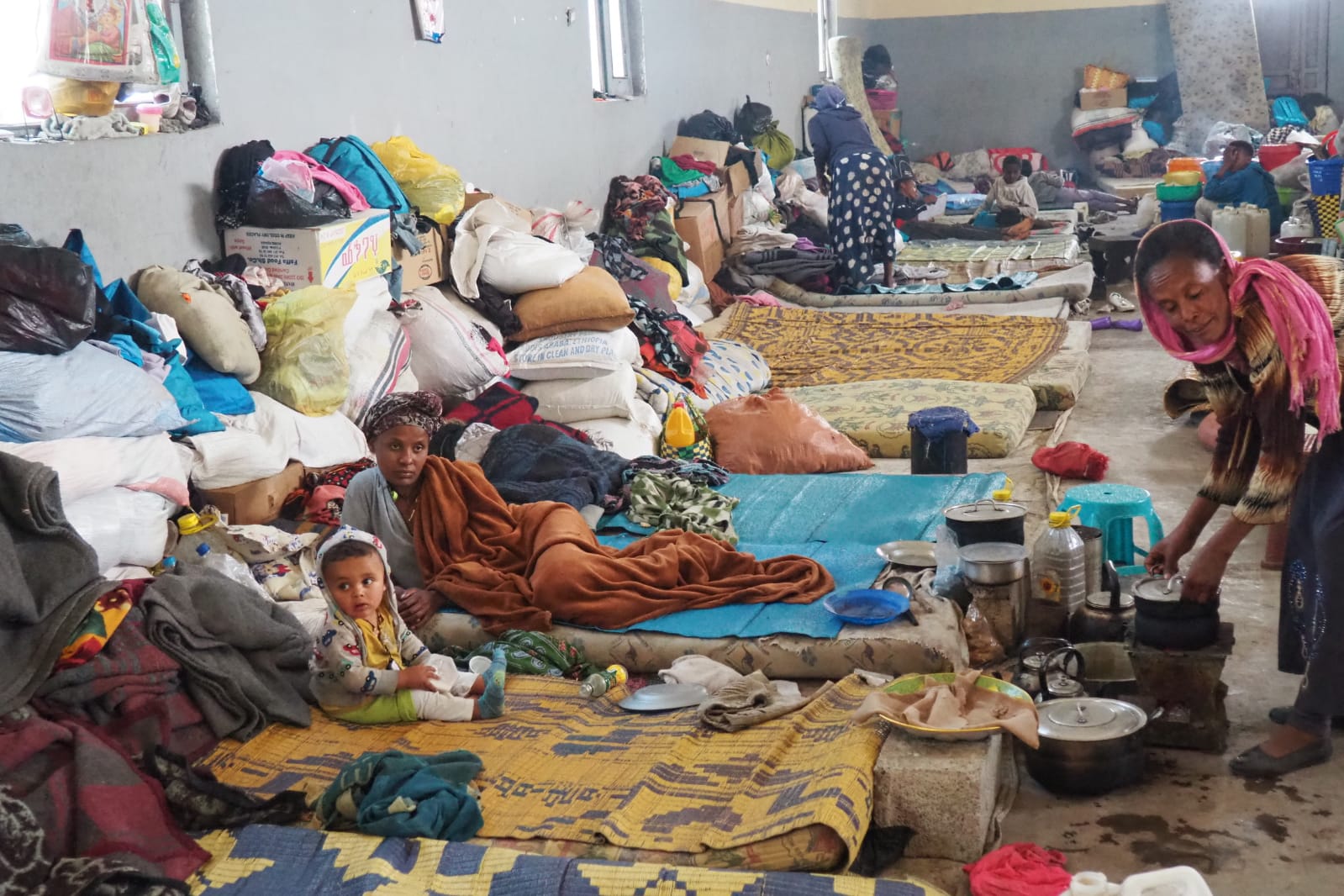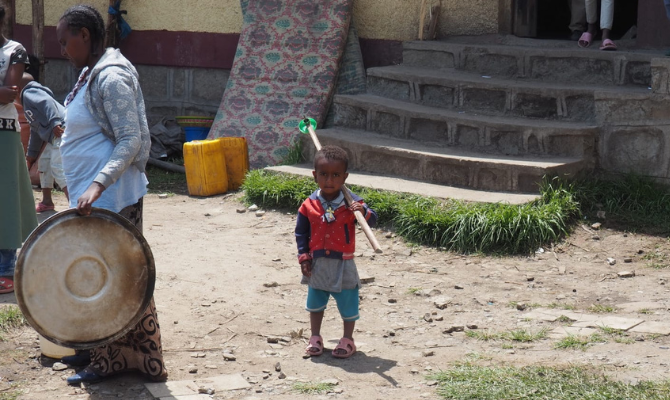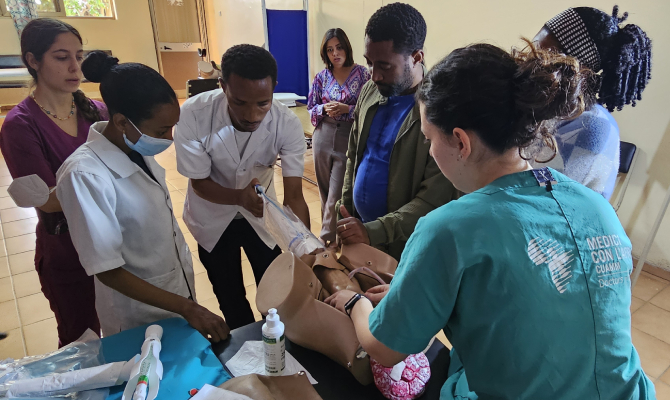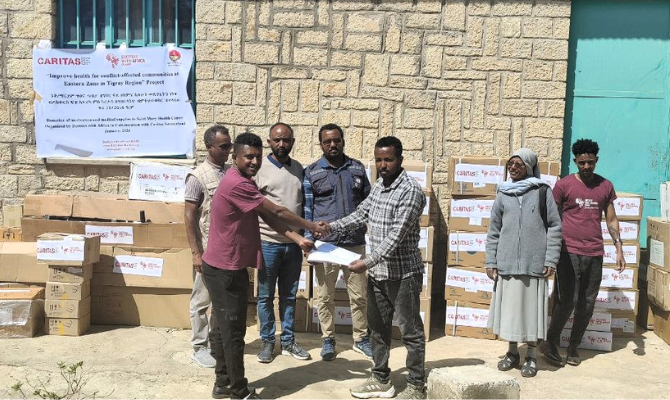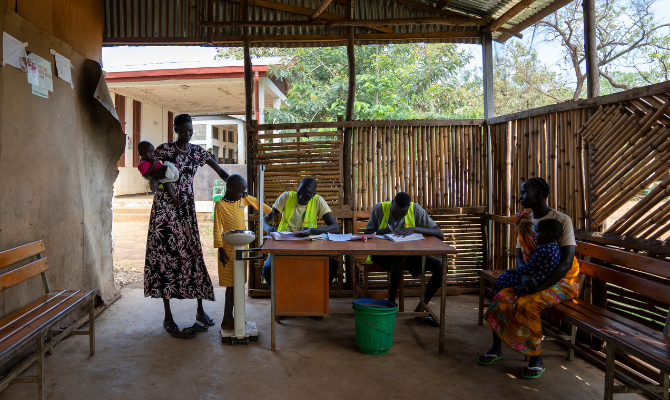«13 months of commitment, 100,000 people reached, three times the number imagined. The project carried out by Doctors with Africa CUAMM, with the support of the World Health Organisation (WHO), to guarantee access to essential health services to displaced people and host communities in Debre Berhan, in the Ethiopian region of Amhara, has come to an end. An emergency response initially developed to support 30,000 people, but which has since offered assistance to almost 100,000. With the deployment of four mobile teams, Cuamm supported the health department in the distribution of drugs and 4,500 dignity kits to the most vulnerable women in the intervention area.
During the workshop presenting the results, attended by the local authorities, the WHO team and some spokespersons of actors in the area, such as Goal and Project Hope, Bekele Gebire, representative of the area’s health department, pointed out that in Amhara the state of housing, health and nutritional need is still serious, despite the efforts implemented together. Gebire explained that the population also faced outbreaks of epidemics, such as cholera, measles and acute respiratory infections. Cuamm has helped to cope with these ’emergencies within emergencies’, offering treatment, always in synergy with Ethiopian institutions and partners. Among the greatest context-driven challenges , the mobile teams operated despite the scarcity of water resources and infrastructure, working six days a week. Among the 100,000 people who received medication, nutritional screening, medical examinations, more than 82,000 were displaced; about 1,500 have returned after the conflict and are living in precarious conditions; more than 13,500 belong to the host community».
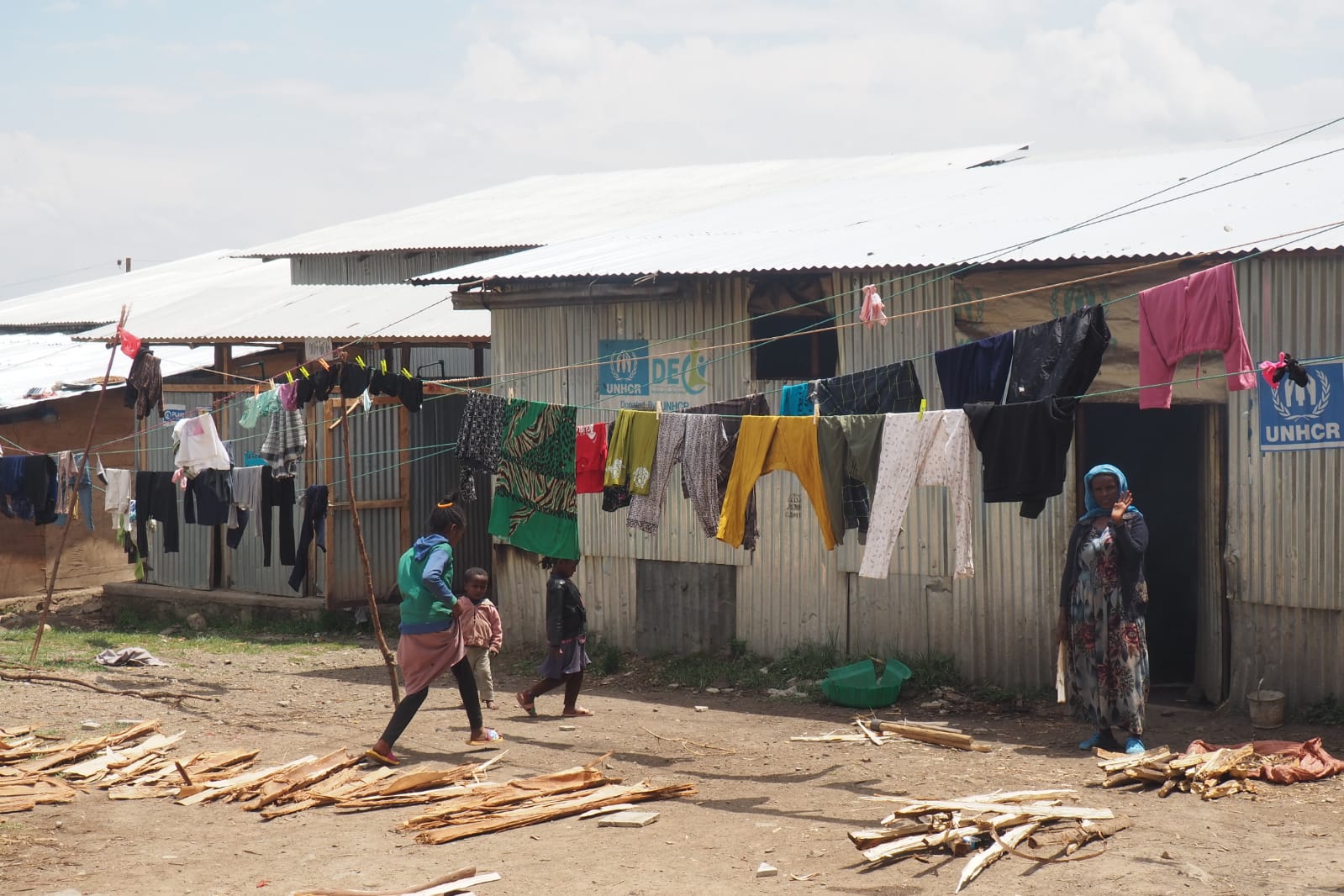
What goes unseen…
«In Kebele 08, among the streets branching off from the main street of Debre Berhan, a structure the size of a basketball court houses almost 400 people, all displaced by the conflict. One glimpses a space in which there are pots, basins, a few sacks of teff, wood drying from the previous days’ rains; in the rest of the building, a sea of mattresses, all next to each other, distributed along the walls and, in the centre, a few women making a fire and preparing lunch.
Stepping out into the courtyard, one encounters the CUAMM clinic, the toilets and showers, insufficient for the number of people living in the shelter, a few tin houses inhabited by families who are natives of the area, children checking the drying of grains. Some mothers approach, asking when the next clinic shift will start, because they need to bring their children. Now that the rainy season has resumed, they say, the little ones have a strong cough, some have dysentery, conditions that, in a risky environment, increase infant mortality. Before leaving, an elderly woman recognises Tassew, CUAMM’s project leader, and approaches him, takes him by the hand, exchanges a few words: ‘We need you’».
The China camp
«An extremely different context, in terms of size, infrastructure and population is the camp just outside the centre of Debre Berhan, where there is the skeleton of a Chinese-owned factory, hence the name of the area, China camp. An expanse of tents so crumpled that one can imagine how long families have lived there. Everything is shared here: the smallest tents, the tin huts, the few bathrooms. China camp now houses 6,000 people, a number that is growing rapidly. And CUAMM is the only organisation that provides health services. Our health centre is also a tent with a small team on hand: a mental health officer, a nurse, sometimes a midwife and a health officer, like Yokabed Abebe, who coordinates the staff.
During the workshop at the end of the project, partners and donors expressed satisfaction with the prompt response that Cuamm has always been able to provide, mobilising its own professionals and adding 4 health officers in the last six months to support the mobile teams in Kebele 03, Kebele 04, Kebele 08 and China camps. The situation in the area, however, remains critical, especially in this season; many of the areas hosting the displaced communities are also inadequate in terms of infrastructure.
CUAMM, together with the local health departments, has planned to mobilise health workers who will continue to visit, conduct screenings and assist families on a regular basis, even as the project comes to an end. A commitment that continues, but needs support. So that no one has to live a displaced life».
